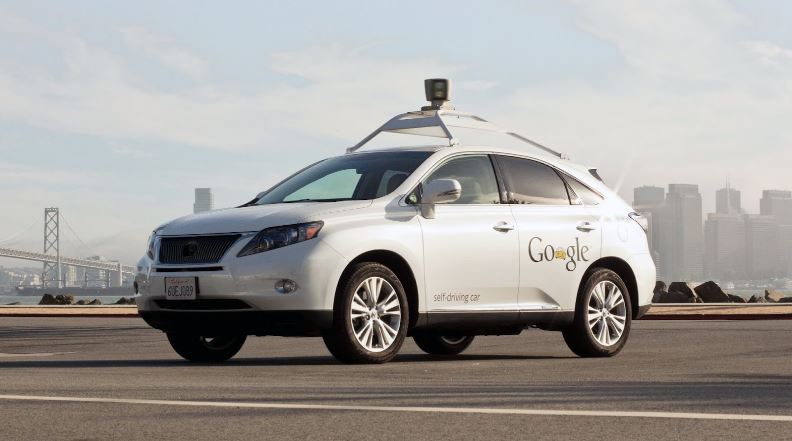The Rise of Robots, The Fall of Future Drivers
Courtesy of Hellen Yang. Found on WikiCommons.
A newly developed model of Google’s automated car as of August 2016.
As the age of revolutionary technological innovations and discoveries dawns upon us, many express enthusiasm and generous support for the development of idealistic experiments such as automated cars, while others sit back and watch through skeptical eyes. Some may claim that automated cars bring the spark of future transportation, as portrayed in “The Jetsons” cartoon. False. Even in the fictional cartoon, George Jetson is still seen in his flying car with his hand on a lever—he is still in full control of his vehicle. While automated cars may be advances in transportation technology, they could prove to be detrimental to traditional human qualities and lifestyles.
Existing only as a dream during the 1960s, automated cars have been taken as a challenge by major leading corporations such as Tesla, Uber, and Google, who plan on attempting to transform that dream into reality. In fact, according to a report from CB Insights, over 30 companies, though not as exuberant as the leading corporations, have already invested considerable amounts of money into the development of their own autonomous vehicles. While I do think that the development of automated cars will be an amazing advance in transportation technology, I do not believe that they will have a positive impact on most humans, especially those who have jobs in the driving business, such as people who drive taxis, buses, etc. If automated cars became popular and the most common form of transportation, they may start to replace real taxis and buses, throwing some individuals out of their jobs, This would result in another addition to the list of victims that have lost their jobs to machines (let us not forget the economic crisis experienced by hundreds of millions of factory workers worldwide when up to thousands of them were replaced by a few robots). While some may argue that the development of robot manufacturing was for the greater good and made production more efficient, I ask them the question: who is really experiencing “the greater good”? Is it the small group of billionaire company owners that receive the greater good, or is it the countless people who have lost their jobs and struggle to support themselves and their family? Although the development autonomous cars may be a revolutionary feat in the advancement of technology, its future impact on humans and the economy could be disastrous.
Despite temptations to overreact and gawk at the luxurious properties of automated cars, we must consider this situation logically and look past their unnecessary accessories to instead concentrate on the important issues regarding the potential mass manufacturing and use of automated cars. For example, how would the traits of self-reliance and independence in humans be affected if we were exposed to automated cars? Some may claim that if people owned automated cars, they would no longer have to risk intoxicated driving if they were drunk. With this theory in mind, if humans had access to automated cars and were no longer afraid to have to drive home drunk, then the self-reliance and moral obligations of humans to not get drunk in the first place would likely deteriorate, thus decreasing the quality of human life and characteristics.
While automated cars may have a place in an idealistic world or even possibly in our near future, they should not be developed into the next common form of transportation, as their impact on humans could easily prove to be more harmful than beneficial and even serve as a possible factor in the de-evolution of firmly established human skills and culture.






